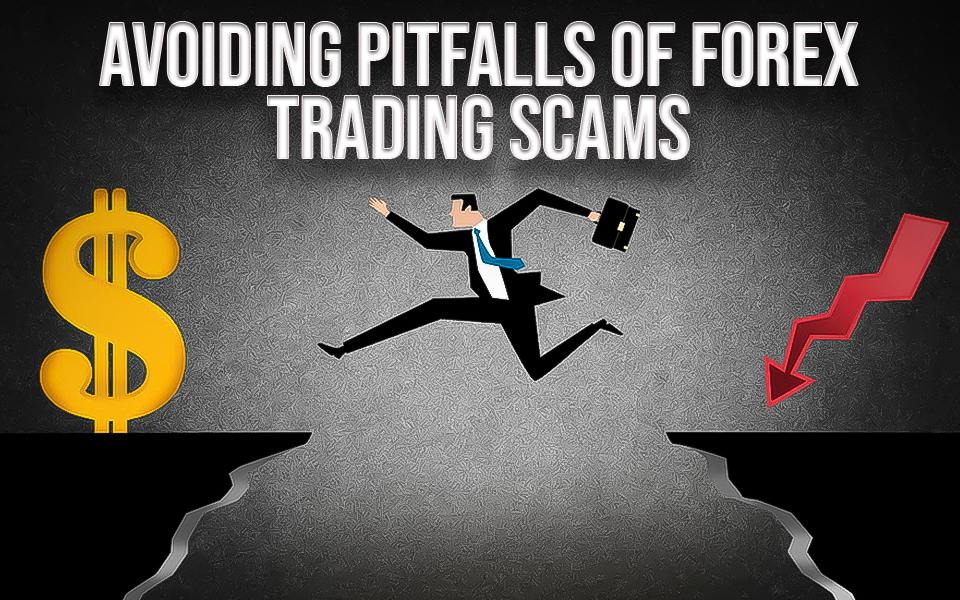


The foreign exchange market or forex trading can be a lucrative avenue for traders to make profits. However, as with any financial market, forex trading is not resistant to the deceptive tactics of scammers. Avoiding Forex trading scams has become a prevalent problem nowadays and it is becoming hard for traders to prevail over forex trading scammers. In this article, we will explore the various types of forex trading scams and provide tips so you can be immune to such swindles and cons. Whether you are an experienced trader or a newcomer to the world of forex trading, understanding the warning signs of scams is essential for protecting your investment and ensuring your success in the market.
Forex trading, also known as Foreign exchange trading, is the buying and selling of currencies from different countries with the goal of making a profit. This market is the largest financial market globally with trillions of dollars traded daily.
While forex trading itself is a legitimate activity, there are scams and fraudulent practices associated with it. Some unscrupulous forex brokers may manipulate prices or trade against their clients, while certain forex trading apps and websites make unrealistic promises of guaranteed profits or high returns with minimal effort. Some forex scammers even utilize Ponzi schemes to defraud traders and harm the reputation of foreign exchange platforms.
To ensure that a forex scammer is legitimate you can check if the trader is registered and regulated by the relevant authorities in their country of operation and research the reputation and history of the forex trading platform. Review their performance to ensure a consistent track record of success before investing. Additionally, contact the CFTC to check the trader’s registration status. Investigate the trader’s performance record on behalf of other clients and request all information in writing to avoid relying on oral promises or statements. You can also seek advice from an independent and licensed financial advisor or consultant whom you trust. By conducting due diligence, you can minimize the risk of losing funds to fraudulent and unreliable traders.
There are various types of forex scams that investors should be aware of before investing their money. Typical forex scams include.
Signal seller scams are a fraudulent practice in which individuals or companies claim to possess insider information or market analysis that can facilitate traders in making profitable traders. Nonetheless, it has been observed that in most cases the signals are found to be unreliable, resulting in the loss of funds for traders.
These scams take advantage of the Percentage Allocation Management Module (PAMM) systems, which allow investors to take part in a managed fund. Scammers often claim inflated returns, charge excessive management fees, and may not have qualified fund managers.
Forex robot scams refer to software programs that purport to offer automated trading solutions capable of generating profits without requiring any human intervention. Regrettably, in the majority of instances, these robots are found to be ineffective, and as a result, traders end up losing their invested capital.
These scams often claim to have a foolproof trading strategy that can generate guaranteed profits from the forex market which is inherently volatile and unpredictable. However, it is widely recognized in the industry that profits and losses are an integral part of forex trading and cannot be reliably forecasted or guaranteed.
Ponzi schemes are a type of fraudulent investment scheme that offers high returns to investors by utilizing the funds from newer investors to pay off earlier investors. Forex Ponzi and pyramid schemes inevitably crumble when the inflow of new investors ceases, thereby rendering most investors with significant losses.
Account management scams refer to the unethical practice of certain individuals or organizations that purport to manage the trading accounts of investors and generate returns on their behalf. The majority of such scams operate by diverting the invested funds to personal use, leading to significant losses for the investors.
Holy Grail forex scams offer a guaranteed trading system capable of producing unlimited profits from the forex market. As mentioned earlier, there is no foolproof strategy in forex trading, and any individual or entity claiming otherwise is engaged in fraudulent activities.
Fake forex brokers who scam people operate without the required licenses or regulatory oversight. They often lure traders with attractive trading conditions and promises of high returns, but once traders deposit their funds, they disappear with the money.
Forex traders can be identified by their behavior and actions. Here are some warning signs to look out for,
Forex brokers make money through various ways, such as spreads, and commission charges. The spread is the primary source of income for most forex brokers, which is the difference between the bid and ask price of a currency pair. Additionally, some brokers charge commissions, particularly in the ECN or STP forex broker model. Forex brokers may also charge overnight fees or swap fees, inactivity fees, and deposit and withdrawal fees.
Forex brokers do not make money directly from their clients’ losses. They earn their income from various fees and charges they impose on their clients. Forex brokers’ income is not affected by whether their clients win or lose trades, as they earn their income regardless of the outcome.
If you have lost money to a forex scam, there are a few things you can do. It is advisable to report the scam first to the relevant authorities such as the financial regulatory authority in your country. You can also contact your bank or credit card company to request a chargeback or seek legal advice if you have lost a significant amount of money. Moreover, it is important to spread awareness about the scam to prevent others from falling victim to it.
To increase your chances of recovering your funds you may also seek help from the fund recovery services. Zecoup offers a range of methods to help people recover lost funds in forex. We are staffed by experts with specialized knowledge and experience in dealing with forex scams, who may use a variety of tactics such as legal action, negotiations, and investigative techniques to locate and recover lost funds. Additionally, fund recovery services often have established relationships with law enforcement and financial institutions, which can help in the recovery process.
Unregulated brokers and brokers with poor customer reviews are suspected to be fraudulent. Here is a list of some scam forex brokers,
Forex investment scams frequently involve offering to handle investors’ forex trading accounts and presenting them with manipulated screenshots of profits.
It is possible legally but scammers may steal money from your Forex account through various means such as hacking, identity theft, and unauthorized access.
Be unyielding to the forex trading scams with Zecoup. Contact us! If you have fallen into the trap of unscrupulous forex scammers.
